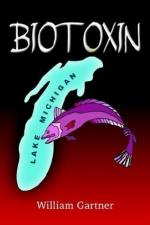|
This section contains 769 words (approx. 3 pages at 300 words per page) |

|
A toxin is a substance that is harmful to living organisms. Toxic effects can be the result of exposure to toxins. Since World War II, the use of chemicals, especially synthetic ones, has increased tremendously in our society. Consequently, people have become concerned about the toxic effects of those chemicals, and the relatively new area of science known as toxicology was developed. Toxicologists study the harmful effects of chemicals on plants, animals, and humans.
It is a common misconception that natural chemicals are safe while synthetic (human-made) chemicals are not. The origins of chemicals do not determine their toxicity. Toxins include naturally occurring substances as well as hundreds of thousands of human-made substances. For example, heavy metals such as cadmium, lead, mercury, and nickel are naturally occurring. We encounter them in our everyday lives yet they are dangerous toxins. We eat foods that contain natural toxins. Aflotoxins occur...
|
This section contains 769 words (approx. 3 pages at 300 words per page) |

|


